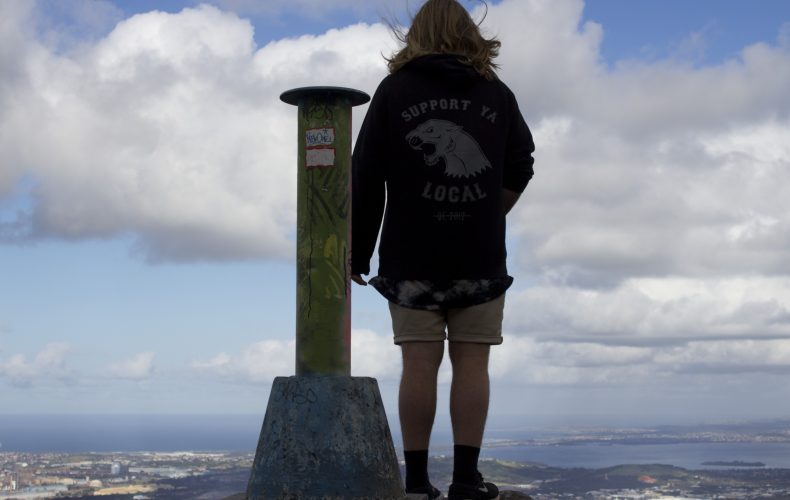Below are the ideas and highlights collected from discussions groups at our October Here2Stay event around each of the 8 principles/pillars for encouraging lifelong faith. The discussion groups were context-based: ie parents; church leadership; and two mixed groups of children & schools ministry leaders, Para church organisations & those interested in intergenerational ministry.
Mission Engagement: Serve in Mission & Respond with Compassion
- Street Teams: A local faith community collates a list of practical needs from members of the local community. Families are invited to join a street team i.e. join with another family, group of individuals and volunteer for one of the tasks on the list. This could happen on a coordinated Saturday or set aside a month where teams choose their best date.
- Faith communities issue a local mission challenge for their families/homes: Compile a list of mission opportunities and invite families/homes to consider what their response could be i.e. the homeless people who sleep under the bridge each night. Families/homes then act on their own suggestions. Alternatively, the faith community doesn’t supply the list of opportunities – families/homes are challenged to come up with their own list and decide on one for which they can respond. In this process individuals are to reflect on 1) what they are passionate about 2) what they are good at/what are their skills and gifts?
- Faith Communities to hold a ‘Mission Month’ for acts of service as described above. Part of this process is to redefine ‘mission’.
- Churches could set up a local Facebook group to promote local service needs and to help people/families to connect with these needs.
- Give people of all ages a voice for serving into the big issues confronting local and global communities e.g. refugees, domestic violence, etc. Develop strategies for moving from the spoken word to the enacted word.
- Local faith communities or individual families/households to connect with local bakeries to deliver unsold bread at the end of the day to needy homes.
- Cooking and preparing food for local families in need. During the cooking process, the older can mentor the younger in how to prepare food and meals. The same process can apply for widowers who have not learnt how to cook. Ideally, provide opportunities for those who have prepared the meals to give them in person to the recipient.
- The BIG question is how to raise a consciousness and awareness within households about the opportunities around them and how to help them to set priorities as household groups to work together to serve. In so doing, the roots of individual faith will be planted more deeply into individual lives.
Divine Encounters: God’s Big Story & Encounters with Jesus
Challenges:
- Prioritising space and time for kids to encounter Jesus
- Do we need to teach kids/show them how to encounter Jesus?
- Children/young people need people walking alongside them to help them to make sense of their encounters with Jesus.
- We often try to fit encounters into a space and want to measure it somehow… how do we create space and expectation without forcing it to happen?
- God’s big story can be confusing too when we only get small segments of time.
Ideas:
- Prioritise some more flexible space and time in planning kids time.
- Think creatively and ‘outside the box’ when thinking about kids encountering Jesus- family devotions could be done while walking up a mountain or serving together. We can all encounter Jesus in so many ways, there is no need to restrict those spaces to 5 mins of silence sometimes.
- Routines are good too- setting habits,
- SU model different approaches to quiet times on camps and shared experiences together.
- Sharing encounters and ‘wonder or wow’ moments in intergenerational settings is important. Could 5 mins in a service be used to share one of these with someone in a different age group? Could family spots in services be used to share exciting things together about our journeys with God? It is encouraging to hear about God moments in the ups and the downs.
- God’s big story: Kids (from pre school to year 6) loved exploring the Bible timeline with items from different stories- they were then asked to place themselves where their story might fit.
- Timeline cards turn over to reveal: The Bible is one big story of how God loves his children and comes to rescue them.
Life Encouragers: Coaches & Mentors and Positive Peer Groups:
Challenges:
- Mentoring can seem like a ‘scary’ term. Need to demystify & educate on how simple it is to be a mentor – you don’t need a degree, but be a good listener, ‘along-sider’ and in some instances a skill sharer.
- Church can help make these natural connections for both mentoring & peer groups. Older members of a congregation may often never consider themselves as a mentor but just need encouragement, education and help to see they would be invaluable.
- We may need to re-prioritise our time to make space for something new – allow time for mentoring.
- Who are we mentoring & are we being mentored ourselves?
- Ideas:
- Natural connections present the easiest way to create mentoring opportunities eg. Parents mentoring their friend’s children, giving a teen driving lessons, neighbours children. Skill-sharing provides a great opportunity to mentor a younger person – fixing a bike, cooking – doing life together.
- Church as a breakfast between its two morning services. People are directed to sit at tables but are purposefully moved once or twice during the breakfast to help facilitate people mixing and creating opportunity for intergenerational connections to lead to mentoring relationships.
- Arrange church café style with tables & vases on table. Every person depending on their age bracket (primary age, teen, young adult, senior etc) are given a different coloured flower. They can sit at a table as long as it doesn’t already have their coloured flower present in the vase. This encourages intergenerational connections and again can lead to mentoring relationships being formed. It’s an intentional approach.
- Peer Groups: Church provides some great opportunities for positive peer groups. An example of a particular type was Boys Brigade – where leadership development, mentoring & coaching & peer-to-peer relationships are all present.
- Memorable Experience: Peak Experiences & Rites of Passage
Key ideas:
- Peak experiences CAN be about exciting, positive moments, but sometimes ‘negative’ experience may also become anchors for our faith (illness/ disability/ death).
- We talked about the roles of parents – churches – God in the ‘manufacturing’ of a peak experience – churches can set up opportunities. Parents can ‘buy in’, but it’s up to God and the individual as to whether or not a ‘peak experience’ occurs.
- Peak experiences can be a point of greater connection with those who share the experience (ie. a bunch of kids on youth camp will grow closer together, a family on a hike together with share a strengthened relationship.
- Peak experiences are typically where a person is taken ‘out of context’ to experience something different.
- Publicly acknowledged: church service/noticeboard/announcements/etc
- – special meal – letters/cards – praying together – scrapbook/photo album – special presentation/awards – hike
- Occasions: – baby dedication/baptism – starting school/school transitions – baptism – graduation – significant birthdays – ‘becoming a leader’ (leadership opportunities – school/church/Boys Brigade/etc) – gap year/travel – engagement – marriage – empty nest – retirement
- Key idea was that many of these ‘transition points’ happen whether we mark them or not – the key is to intentionally pause and recognise the moment and its spiritual significance. The way we celebrate should be individual to the person – ie. Not everyone will appreciate a scrapbook, hike, etc. – make it personal!






